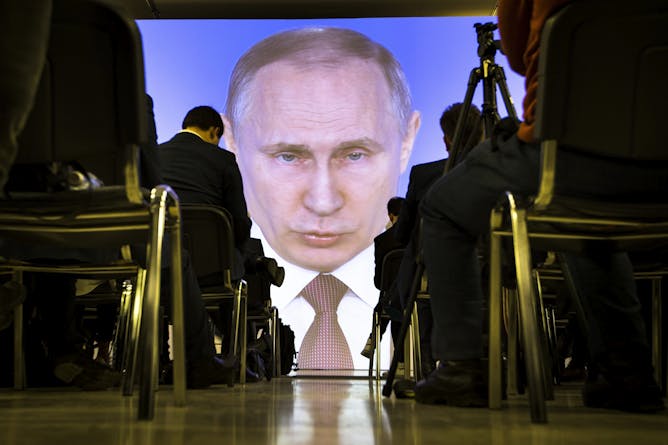|
Everyone knows cannabis becomes legal in Canada on July 1. But do you know when it first became illegal? Today in The Conversation Canada, Catherine Carstairs of the University of Guelph tells the fascinating history of how cannabis first became a restricted drug almost 100 years ago.
Rosanna Olsen, a scientist at the Rotman Research Institute at Baycrest Health Sciences and an assistant professor at University of Toronto, writes about what scientists know and don’t know about Alzheimer’s disease and how healthy brains may provide the best clues. Dr. Olsen notes “brain changes caused by Alzheimer’s actually start many years, even decades, before the onset of serious memory problems. That is why scientists like myself think it’s critical to find ways of detecting the disease before symptoms appear.”
And finally, anyone who watched the recent Winter Olympics or the current Paralympics will have noticed that Russian hockey players wore “neutral” uniforms because Russia was banned from the Games for past doping sins. Theodore Christou of Queen’s University notes that at previous Olympics, the Russian hockey players wore jerseys that featured a distinctive double-headed eagle. Prof. Christou explains the eagle is the imperial symbol of the Byzantine Empire and why Vladimir Putin is trying to build a new empire with ties to ancient Byzantium.
Regards,
|

Canada is on track to legalize marijuana on July 1. But why was it criminalized in the first place?
THE CANADIAN PRESS/Adrian Wyld
Catherine Carstairs, University of Guelph
Canada is legalizing marijuana on July 1. But how the drug became criminalized in the first place is an interesting saga that involves anti-Chinese racism and international influence.
|

There are currently no effective treatments for Alzheimer’s disease, which causes may elders to live their last years without recognizing their loved ones, and unable to care for themselves.
(Shutterstock)
Rosanna Olsen, University of Toronto
Study of the "memory centres" of the brain in adults offers hope for detecting Alzheimer's disease earlier -- before the onset of memory loss.
|

Russian President Vladimir Putin has been described as a Byzantine Emperor in style, positioning Russia as the “third Rome.” In western history books, on the other hand, the Bzyantine Empire is all but ignored, pointing as it does to the east.
AP Photo/Alexander Zemlianichenko, File)
Theodore Christou, Queen's University, Ontario
Russian president Vladimir Putin draws upon the imperial symbols of the Byzantine Empire to position Russia as the "third Rome." Meanwhile, Byzantium is erased by western history books.
|
Business + Economy
|
-
Amitrajeet A. Batabyal, Rochester Institute of Technology
President Trump recently imposed steep tariffs on foreign steel and aluminum. An economist explains what they are, how they work and why they matter.
|
|
Politics
|
-
John J Stremlau, University of the Witwatersrand
Relations between the US and Africa are unlikely to improve while Trump remains president. But that doesn't mean the continent should remain passive.
|
|
Science + Technology
|
-
Karen Lamb, Deakin University; David Farmer, Florey Institute of Neuroscience and Mental Health
A statistical method widely used today by scientists and others is all thanks to a statistician at a Guinness brewery whose work was published anonymously more than a century ago.
|
|